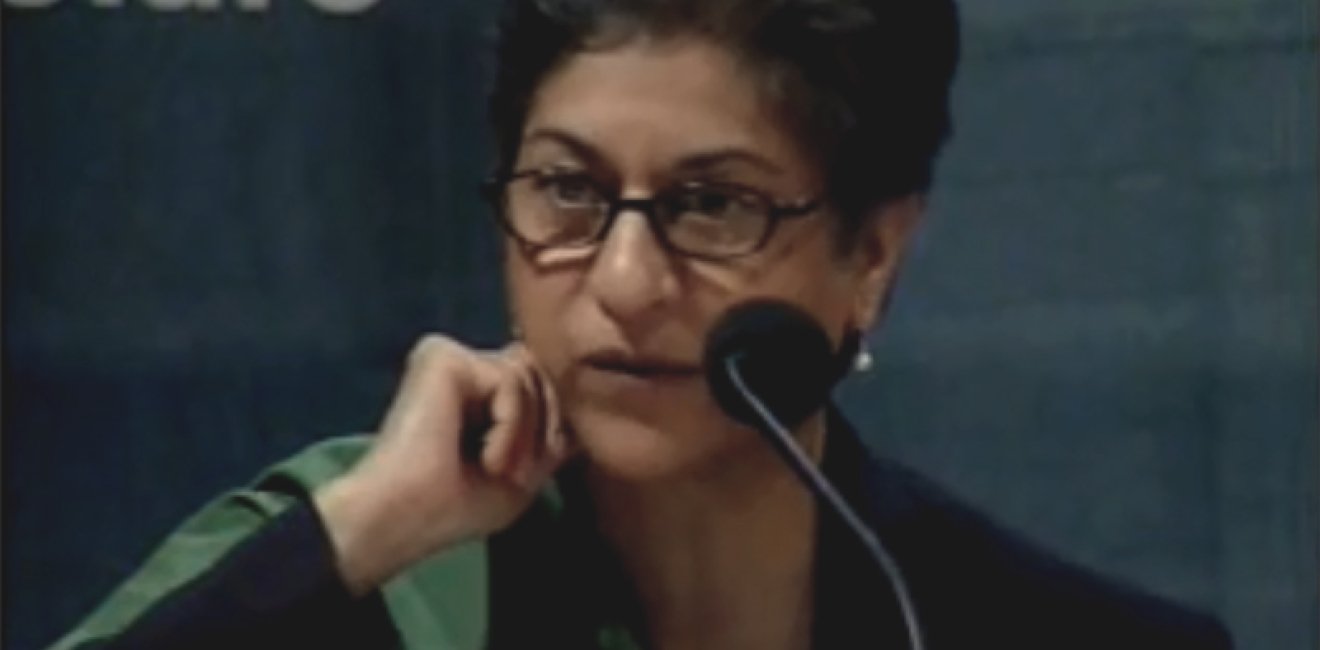
A blog of the Indo-Pacific Program
Back in November 2005, the Woodrow Wilson Center hosted a talk by Asma Jehangir, Pakistan’s most prominent human rights activist. Those of us in the audience that day could not have known how prophetic her words would be.
Jehangir, who died on February 11, warned that until Pakistan’s powerful military “recedes,” the country will not become a more moderate or tolerant place. She made a bold declaration: For Pakistan to truly prosper, it must “demilitarize.”
At the moment she spoke, Pakistan was under military control. Today, the country has experienced uninterrupted civilian rule for nearly 10 years, but the army continues to wield extensive and often uncontested power behind the scenes.
In effect, the military hasn’t receded. And, as Jehangir had predicted, neither has repression. In recent months, journalists and, increasingly, social media activists critical of the security establishment have been targeted. Sometimes victims are attacked on busy city streets, but more often they’re quietly monitored or mysteriously disappear. “The crude acts of repression” under military rule, noted Amnesty International’s Omar Warraich in a recent essay, “have now assumed subtler, more pernicious forms.” In January 2017 alone, five online activists disappeared.
In 2016, Pakistan passed a new Prevention of Electronic Crimes Act—a cybercrimes law supposedly meant to target online sexual harassment and the internet activities of terror groups. However, since its passage, the government has arrested dozens of people and blocked thousands of websites. Online rights activists contend that the state is using the law as a pretext to crack down on online content critical of the government and military.
Meanwhile, the tentacles of radicalization are spreading rapidly. New hardline Islamist parties have joined the political process. A candidate supported by one of these parties, which is linked to the Lashkar-e-Taiba terror group, earned nearly 6,000 votes—four times more than the liberal Pakistan People’s Party, the party of the late Benazir Bhutto--in a September by-election in Lahore, Pakistan’s second largest city. In November, another group, whose leader advocates the killing of religious minorities, staged a two-week sit-in in downtown Islamabad.
Pakistan’s rising intolerance bodes ill for its most vulnerable—the very communities that Jehangir dedicated her life to defending. She advocated for impoverished women, imperiled religious minorities, and bonded child laborers, among others.
She was also fearless in the most fundamental sense, because she assailed the unassailable. She confronted Pakistan’s military and intelligence establishment, which most Pakistanis don’t dare defy or denounce. She continued even after news emerged in 2013 that U.S. intelligence officials believed the Pakistani security establishment had plotted to kill her.
Jehangir’s activism follows a long tradition in Pakistan. The country has a deep legacy of organized dissent, from student movements in the 1960s and 1970s to campaigns against the curtailment of freedoms for women in the 1980s. In the 2000s, peasants staged an organized resistance to the construction of military-run farms on their land. In 2007 and 2008, lawyers, journalists, and students launched a pro-democracy movement that culminated in the end of military rule. Jehangir was on the frontlines of many of these movements.
Few if any Pakistanis, however, have relentlessly espoused positions as stridently anti-establishment as Jehangir’s. Fear is a big reason why.
In her Wilson Center speech, Jehangir had said: “If you want to be with the establishment, the sky is the limit…But if you don’t agree with the establishment, you won’t be able to do an honest day’s work.”
More than 12 years later, her words still ring true.
Even after nearly a decade of shaky democratic rule, dissent can be a death wish. Militants assassinated Sabeen Mahmud, who decried Pakistani military policies in insurgency-riven Baluchistan, in 2015. They killed Khurram Zaki, a bold critic of extremism, in 2016. Even dissenters within the government have paid with their lives. In 2011, gunmen assassinated two officials who criticized Pakistan’s blasphemy laws: Salman Taseer, the governor of Punjab province, and Shahbaz Bhatti, Pakistan’s minorities minister.
Little wonder Pakistanis have referred to Jehangir as irreplaceable. Indeed, there’s nothing ordinary about a woman who repeatedly shrugged off the threats posed by tyrants and terrorists—not to mention malicious misogynists—in her singular pursuit of rights and justice.
If there’s a silver lining, it’s that Jehangir’s legacy will live on. Pakistan is blessed with a new generation of activists. A young lawyer named Jibran Nasir has risen to prominence because of his movement against militancy. Other activists, including Jehan Ara and Nighat Dad, fight for freedoms and rights on digital and online platforms—an increasingly vulnerable space in Pakistan. Lesser known Pakistanis do equally brave work, including women’s rights advocates Maryam Bibi and Gulalai Ismail. And just in recent days, ethnic Pashtuns converged on Islamabad to demand an end to landmines, forced disappearances, and other indignities they suffer in the tribal areas—a rare case of organized opposition to security establishment tactics.
All this said, the principles and pursuits of Jehangir have never been more essential—and not just for Pakistanis. We all live in an era of rising intolerance and creeping authoritarianism. The world, not just Pakistan, needs more Asma Jehangirs.
The views expressed are the author's alone, and do not represent the views of the U.S. Government or the Wilson Center. Copyright 2018, Asia Program. All rights reserved.
Author


Indo-Pacific Program
The Indo-Pacific Program promotes policy debate and intellectual discussions on US interests in the Asia-Pacific as well as political, economic, security, and social issues relating to the world’s most populous and economically dynamic region. Read more





